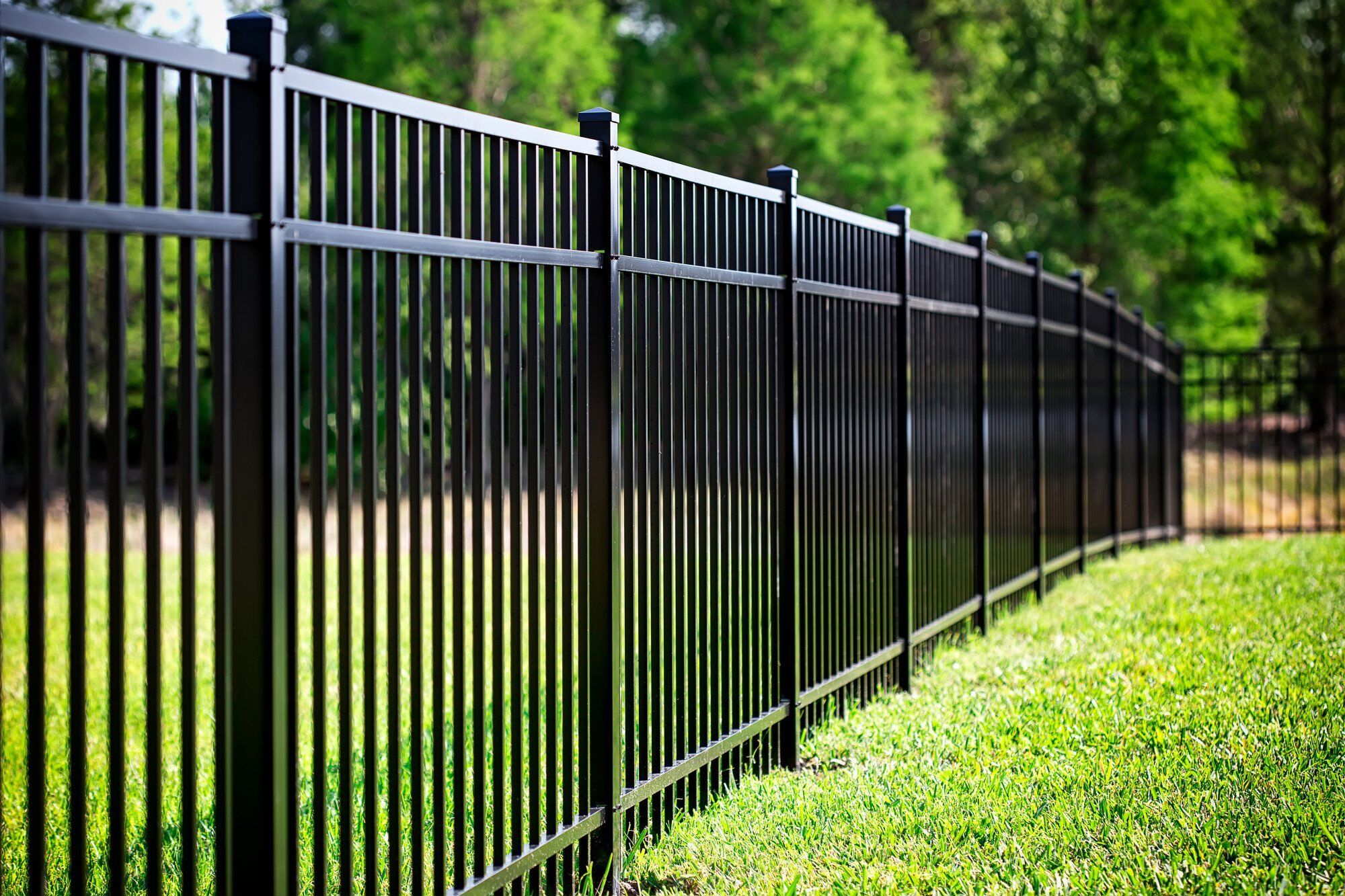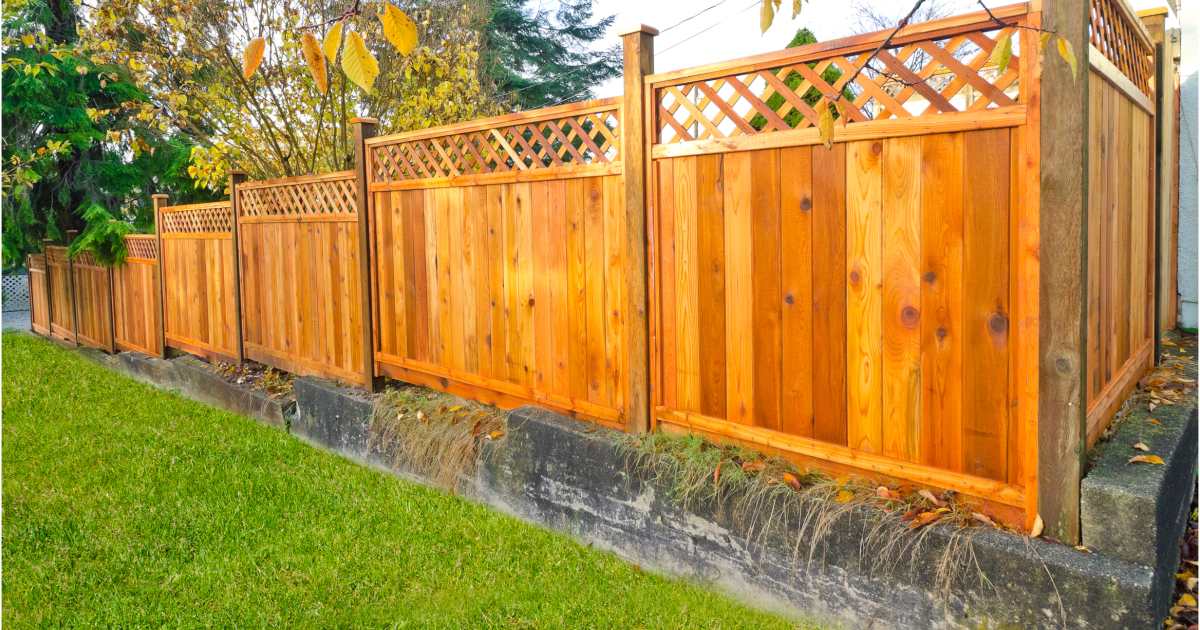All Categories
Featured
It's necessary to comprehend the license demands specific to your area when you decide to set up a fence around your domestic property. While installing a fencing can look like a simple home enhancement project, neighborhood laws and guidelines have to be complied with to make certain the setup is certified and legal. Stopping working to secure the proper permits could lead to fines or perhaps require you to eliminate the fence. Right here's an extensive look at the licenses you might need for fencing installation.
Why Do You Need a License for Fencing Installment? A fence is more than just an obstacle in between homes-- it can impact safety, home worth, visual appeals, and even ecological conditions. Regional governments require authorizations to ensure that fences fulfill certain standards and do not create issues for energies, neighbors, or the neighborhood in its entirety. Permits additionally guarantee that the installation adheres to zoning laws, constructing codes, and safety and security regulations.
![]()
Sorts Of Permits You May Need. Building License. A structure permit is one of the most usual licenses needed for fence installation. If you're constructing a fence over a certain height (typically over 6 feet), you'll likely require a structure permit.
Zoning Permit. A zoning authorization guarantees your fence complies with height, place, and obstacle guidelines. Fences may need to be set back a certain distance from pathways, roadways, or home lines to protect against blockage or disturbance with energies.
HOA Approval. If your residential or commercial property is component of a home owners organization (HOA), you may need to seek approval prior to installing a fencing. HOAs usually have guidelines that regulate the appearances and structure of fencings to guarantee they are in harmony with the community. You could require to submit your prepare for approval, and the HOA might restrict fence material, style, or elevation.
Specialized Permits. In some locations, there might be additional permits needed for particular scenarios. As an example, if your fence is near a safeguarded ecological location or situated in a disaster area, you may need to acquire specialized authorizations connected to ecological effect. If the fence is in a location with below ground utilities, you might need to acquire clearance to stay clear of destructive pipelines or cable televisions.
![]()
Easement or Utility Firm Consent. Before mounting a fencing, it's critical to inspect whether the home includes an easement, such as an energy easement, which can influence where you can place your fence. Easements are locations of land marked for private or public utilities, and you might need consent from the energy business or other authority to build within this location.
Exactly How to Discover What Allows You Required. To ensure that you're complying with all the necessary policies, here's just how you can establish the certain permits needed for your fencing setup:
![]()
Visit Your Local Government Workplace: The primary step is to consult your regional structure or zoning division. Many cities and counties have guidelines readily available online that define what types of licenses are required for fence setup. If not, checking out the office or calling face to face can aid clarify the process. Inspect Your City's Web site: Lots of communities provide details about fencing installments and the permits required with their official sites. Some web sites even enable you to submit applications on-line. Seek Advice From a Fencing Installment Specialist: If you're uncertain concerning neighborhood guidelines, a professional fencing professional can aid. They recognize with the permitting procedure and can assist you with the steps. The Consequences of Not Getting a Permit. Stopping working to secure the necessary permits before setting up a fencing can cause significant effects. You may be fined or required to remove the fence completely. Furthermore, if you choose to market your residential or commercial property in the future, the absence of an authorization can deter possible buyers, as they might see it as a sign that the building is not certified with local legislations. Ensuring that you have the correct permits will conserve you time, cash, and headaches over time.
Final thought. Setting up a fencing around your house can add both security and aesthetic allure, yet it is very important to ensure you're following the lawful action in the process. Investigating the details authorization demands for your location, including building permits, zoning laws, HOA approval, and utility approvals, will aid ensure your fence installment goes efficiently. Taking the time to understand these needs now can save you from pricey blunders and prospective lawful problems down the line.
Why Do You Need a License for Fencing Installment? A fence is more than just an obstacle in between homes-- it can impact safety, home worth, visual appeals, and even ecological conditions. Regional governments require authorizations to ensure that fences fulfill certain standards and do not create issues for energies, neighbors, or the neighborhood in its entirety. Permits additionally guarantee that the installation adheres to zoning laws, constructing codes, and safety and security regulations.

Sorts Of Permits You May Need. Building License. A structure permit is one of the most usual licenses needed for fence installation. If you're constructing a fence over a certain height (typically over 6 feet), you'll likely require a structure permit.
Zoning Permit. A zoning authorization guarantees your fence complies with height, place, and obstacle guidelines. Fences may need to be set back a certain distance from pathways, roadways, or home lines to protect against blockage or disturbance with energies.
HOA Approval. If your residential or commercial property is component of a home owners organization (HOA), you may need to seek approval prior to installing a fencing. HOAs usually have guidelines that regulate the appearances and structure of fencings to guarantee they are in harmony with the community. You could require to submit your prepare for approval, and the HOA might restrict fence material, style, or elevation.
Specialized Permits. In some locations, there might be additional permits needed for particular scenarios. As an example, if your fence is near a safeguarded ecological location or situated in a disaster area, you may need to acquire specialized authorizations connected to ecological effect. If the fence is in a location with below ground utilities, you might need to acquire clearance to stay clear of destructive pipelines or cable televisions.

Easement or Utility Firm Consent. Before mounting a fencing, it's critical to inspect whether the home includes an easement, such as an energy easement, which can influence where you can place your fence. Easements are locations of land marked for private or public utilities, and you might need consent from the energy business or other authority to build within this location.
Exactly How to Discover What Allows You Required. To ensure that you're complying with all the necessary policies, here's just how you can establish the certain permits needed for your fencing setup:

Visit Your Local Government Workplace: The primary step is to consult your regional structure or zoning division. Many cities and counties have guidelines readily available online that define what types of licenses are required for fence setup. If not, checking out the office or calling face to face can aid clarify the process. Inspect Your City's Web site: Lots of communities provide details about fencing installments and the permits required with their official sites. Some web sites even enable you to submit applications on-line. Seek Advice From a Fencing Installment Specialist: If you're uncertain concerning neighborhood guidelines, a professional fencing professional can aid. They recognize with the permitting procedure and can assist you with the steps. The Consequences of Not Getting a Permit. Stopping working to secure the necessary permits before setting up a fencing can cause significant effects. You may be fined or required to remove the fence completely. Furthermore, if you choose to market your residential or commercial property in the future, the absence of an authorization can deter possible buyers, as they might see it as a sign that the building is not certified with local legislations. Ensuring that you have the correct permits will conserve you time, cash, and headaches over time.
Final thought. Setting up a fencing around your house can add both security and aesthetic allure, yet it is very important to ensure you're following the lawful action in the process. Investigating the details authorization demands for your location, including building permits, zoning laws, HOA approval, and utility approvals, will aid ensure your fence installment goes efficiently. Taking the time to understand these needs now can save you from pricey blunders and prospective lawful problems down the line.
Latest Posts
Discover Exclusive Auto Repair Specials in Chicago at Montclare Auto Repair
Published en
1 min read
Take Advantage of Special Auto Repair Offers in Chicago at Montclare Auto Repair
Published en
1 min read
Find Outstanding Car Repair Services at Montclare Auto Repair – Drive with Confidence
Published en
1 min read
More
Latest Posts
Discover Exclusive Auto Repair Specials in Chicago at Montclare Auto Repair
Published May 29, 25
1 min read
Take Advantage of Special Auto Repair Offers in Chicago at Montclare Auto Repair
Published May 25, 25
1 min read
Find Outstanding Car Repair Services at Montclare Auto Repair – Drive with Confidence
Published May 24, 25
1 min read